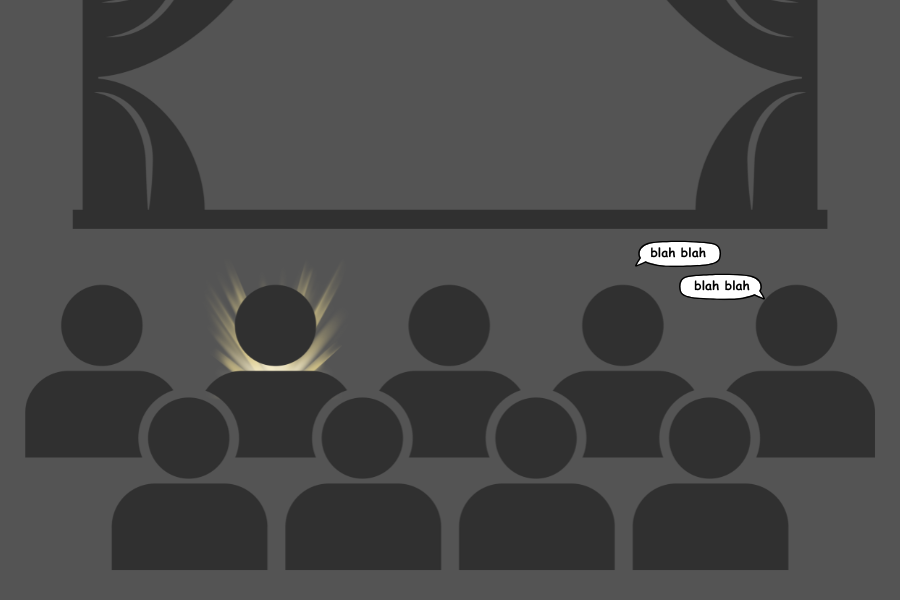Since the dawn of film, cable TV and cinema have been the only two methods of watching television. Today, however, the landscape of how we consume content has changed drastically. While most people enjoy the new content libraries, not everyone is a winner when it comes to revolutionary technology.
Both writers and actors went on strike to protest exploitation and inequitable pay, and while the Writers Guild of America may have reached a historic deal, The Screen Actors Guild-American Federation of Television and Radio Artists remains on the picket line. Now, it’s time for Hollywood to answer the call.
Last May, after numerous concerns regarding the pay rate of Hollywood writers, WGA officially went on strike. With over 11,000 members according to the WGA on-strike website, this triggered a massive issue for studios in Hollywood. Suddenly, productions from multiple studios started delaying a number of upcoming projects, including Marvel. After five months of strikes, WGA reached a deal with producers on Sept. 26.
SAG-AFTRA made the decision to officially join and support the WGA at the picket lines two months after WGA’s initial strike. This gave Hollywood another enormous problem, with actors not picking up new jobs.
It’s ridiculously unreasonable for billion-dollar studios to fail to allocate larger wages to their writers and actors. While most of us may be restless for the announced upcoming projects to be released, we must also be empathetic to the people whose jobs are on the line when they need to provide for themselves and their families.
These strikes represent a failure to compromise on several levels. SAG-AFTRA is making demands surrounding AI protection, wage increases, adequate rest time, and more.
With the constant threat of AI, writers and actors need reassurance that their jobs won’t be completely taken by a machine within the next five to 10 years as technology advances. An agreement between Hollywood and SAG-AFTRA regarding AI is essential – not just for actors and writers in Hollywood, but for the precedent that will be set with it.
AI is going to be able to take over many realms of human endeavor as it progresses. This means that many other professions may soon share this impending threat. If nothing is done in Hollywood now, what does that tell the greedy, money-hungry corporations everywhere else in the world? With this relatively new technology rapidly evolving, the future of employment in Hollywood isn’t looking good. That is, until about five months ago.
Many celebrities, writers, and actors have voiced their opinions regarding the strikes, including Walt Disney’s current CEO, Bob Iger. Iger first spoke out in July. At that point, writers had been on strike for two months and the actors were just about to join.
“We managed, as an industry, to negotiate a very good deal with the directors guild that reflects the value that the directors contribute to this great business. We wanted to do the same thing with the writers, and we’d like to do the same thing with the actors. There’s a level of expectation that they have, that is just not realistic. And they are adding to the set of the challenges that this business is already facing that is, quite frankly, very disruptive,” Iger said, according to Variety.
Iger’s words were not taken well by the general public. Many were rightfully outraged that a man who travels via private jet on a regular basis called the writers’ request for livable wages “unrealistic.” Iger’s inability to get through to the opposing side only made matters worse.
As expected, the president of SAG-AFTRA, Fran Drescher, quickly responded to Iger’s comments.
“I found them terribly repugnant; positively out of touch,” Drescher told Variety. “If I were that company, I would lock him behind doors and never let him talk to anybody about this, because it’s so obvious that he has no clue as to what is really happening on the ground with hard-working people that don’t make anywhere near the salary he is making.”
Drescher makes an incredibly valid argument against Iger and Disney that put other big studios on notice as well. It was clear after the exchange of comments that the relationship between SAG-AFTRA and Hollywood was not looking great despite negotiation attempts. The longer that Hollywood pretends to ignore this issue, the more money they are going to lose. This concerns Disney most of all due to the numerous franchises they own, such as Marvel Studios and Lucasfilm, two studios that are known for pumping out a large quantity of content in a rather short amount of time.
Ultimately, It doesn’t seem like SAG-AFTRA is backing down without a satisfying agreement for both parties. Fortunately, WGA has reached an agreement with studios, but that does not solve Hollywood’s problem. SAG-AFTRA remains to hold out, as they have higher demands that have yet to be met.
With that being said, Hollywood needs to promptly get their act together and come up with a mutually beneficial solution. If they fail to accomplish this, they will continue to lose money, continue to push projects, and may even become obsolete if never come around. While that may seem like an extreme statement, it’s not. While business is slow in big movie studios, other forms of content are continuing to exist and function normally, including short-format content on TikTok and Instagram and especially long-format content on spaces like YouTube and Rumble. If Hollywood doesn’t please its SAG-AFTRA soon, they could be under for a very long time to come.
Follow Aidan on Twitter/X @Burnsy4B










